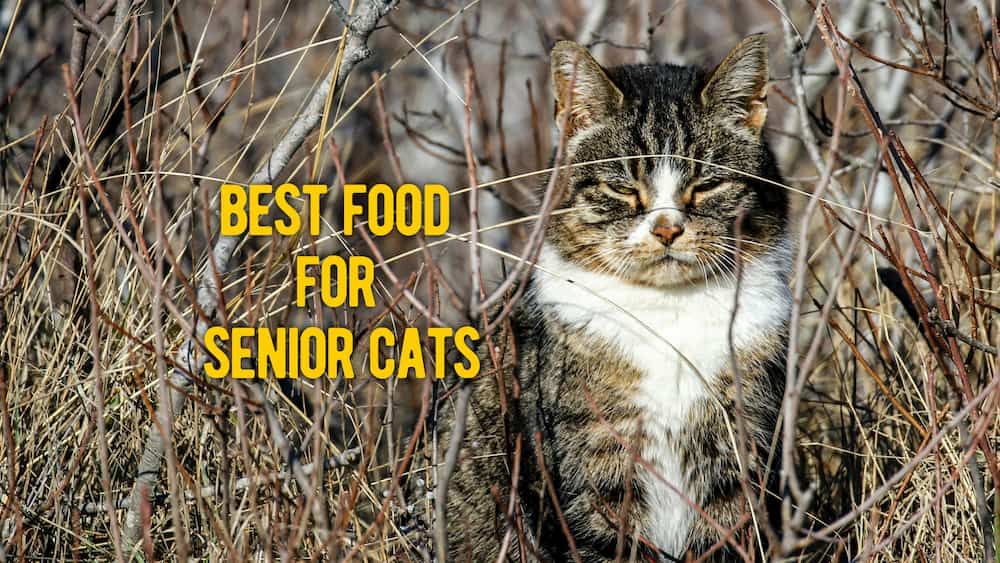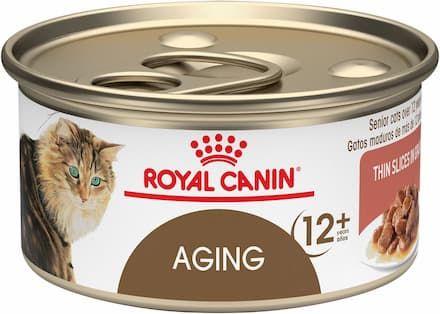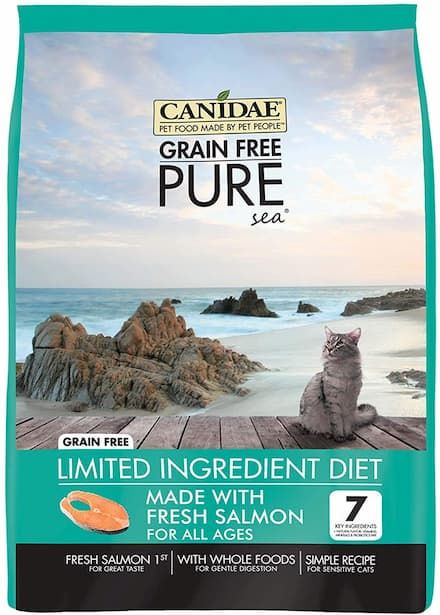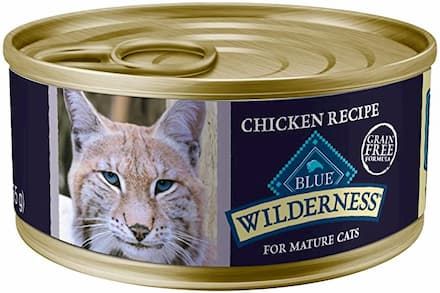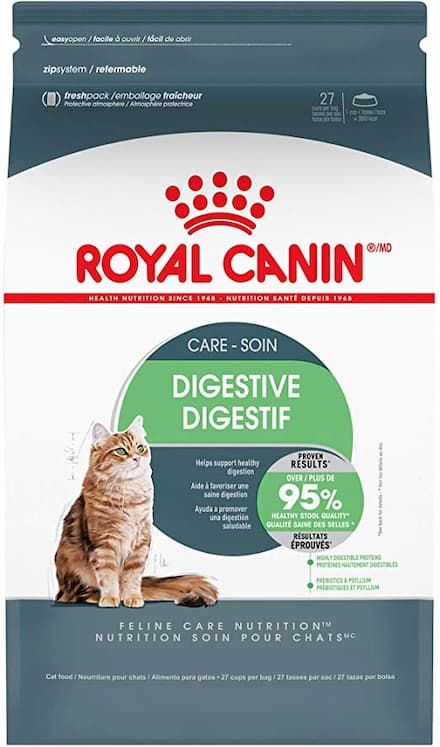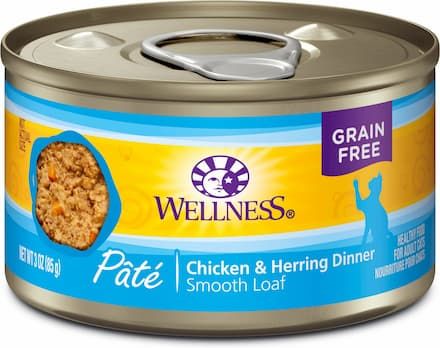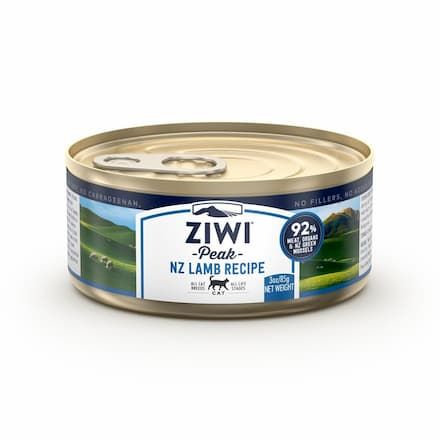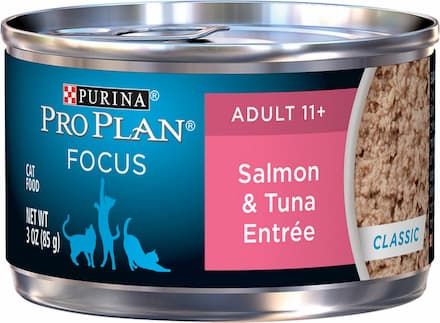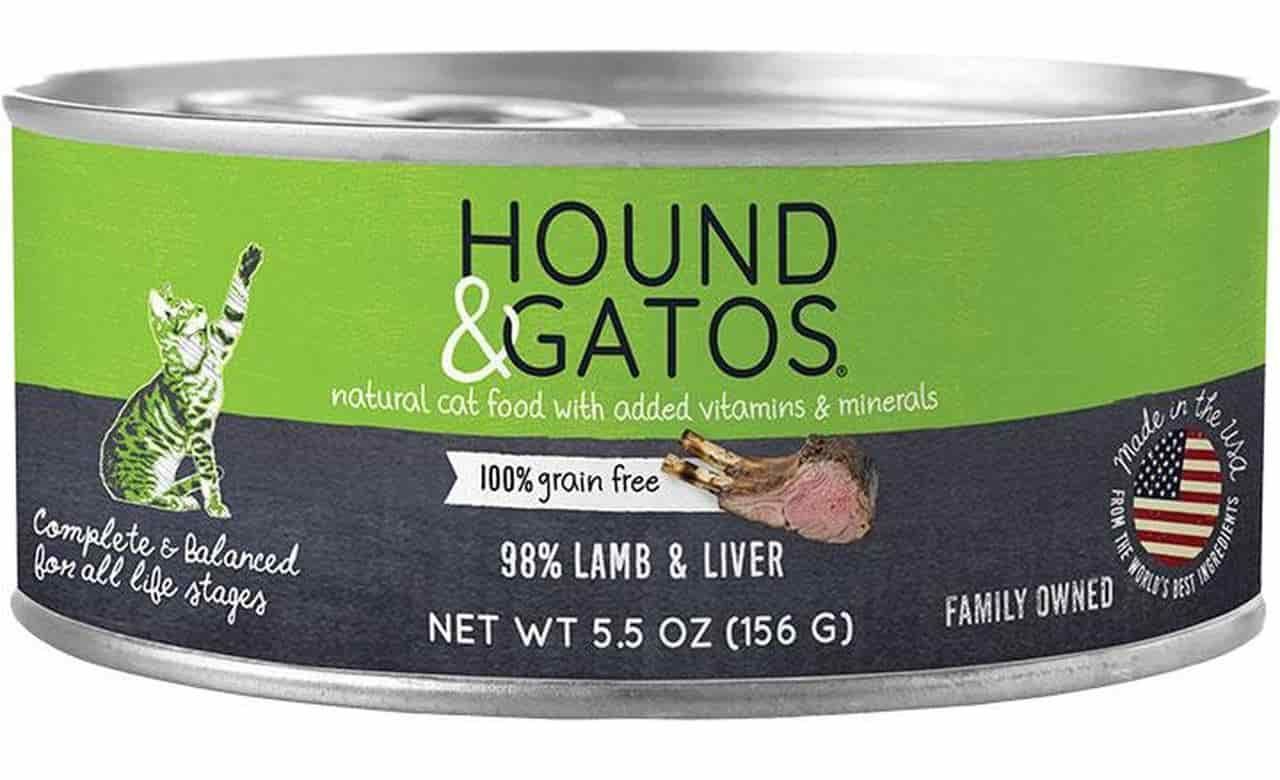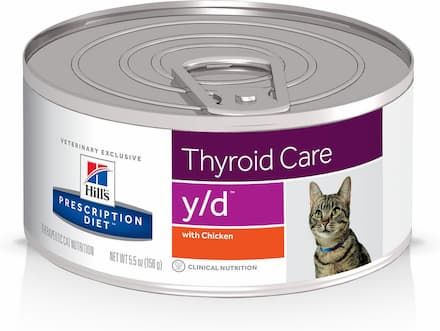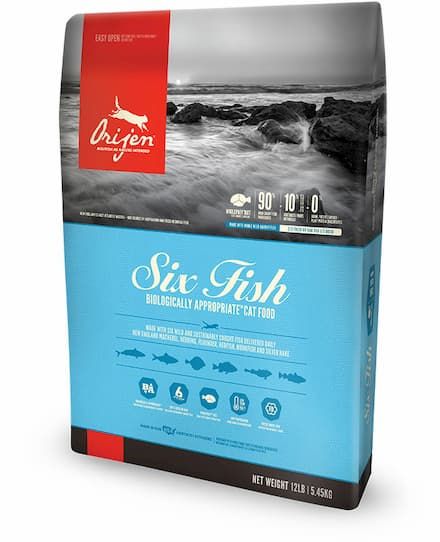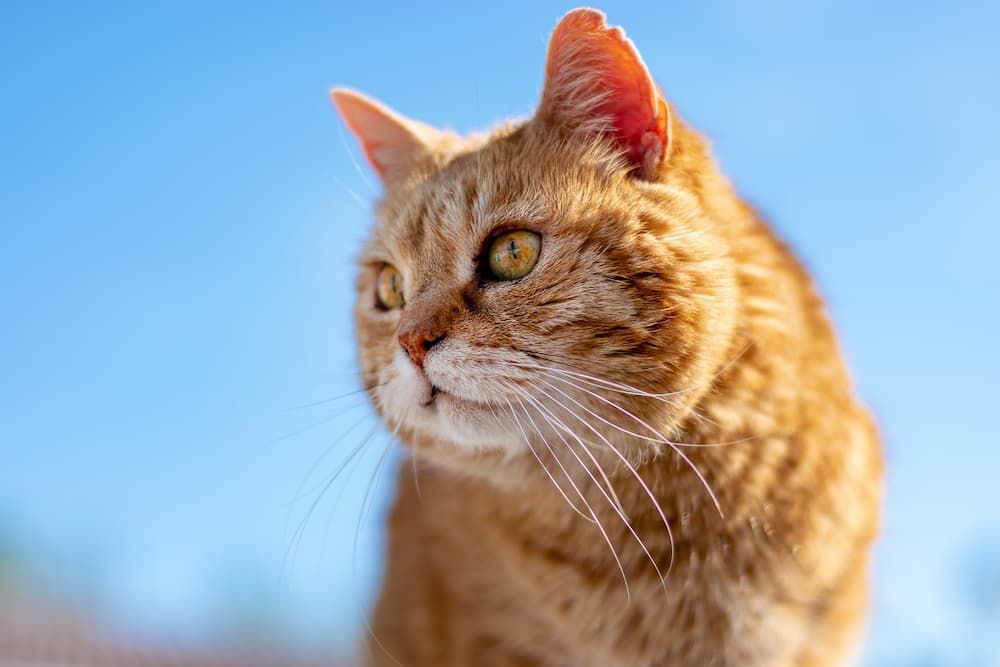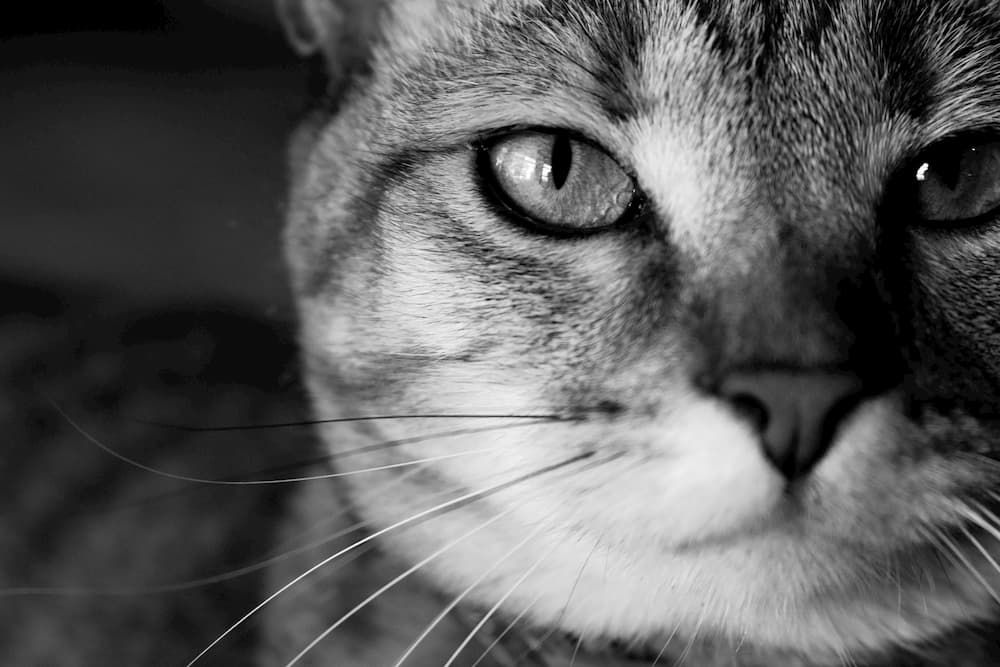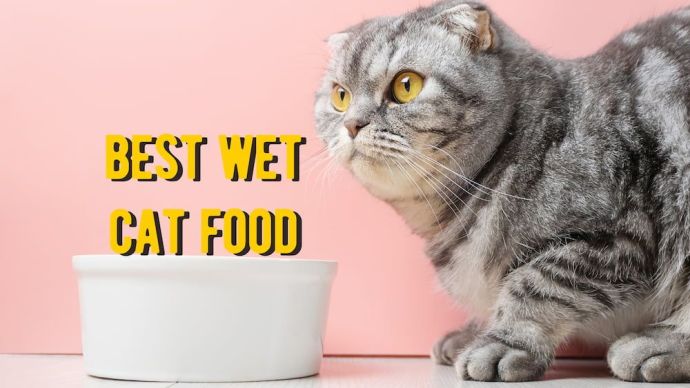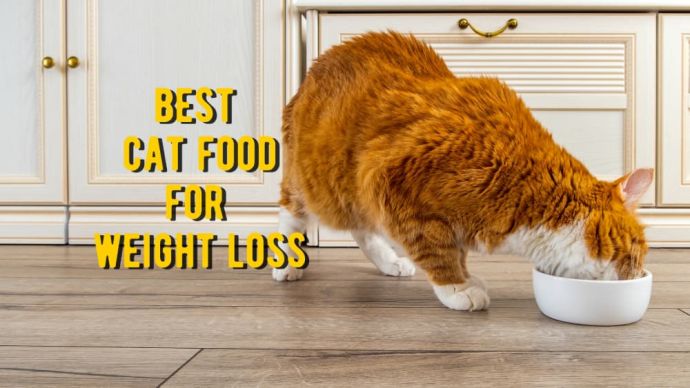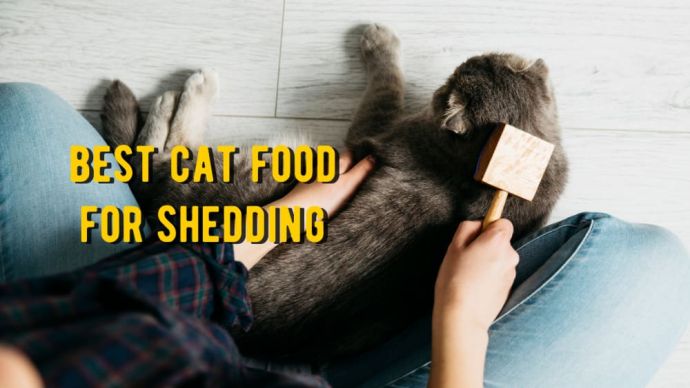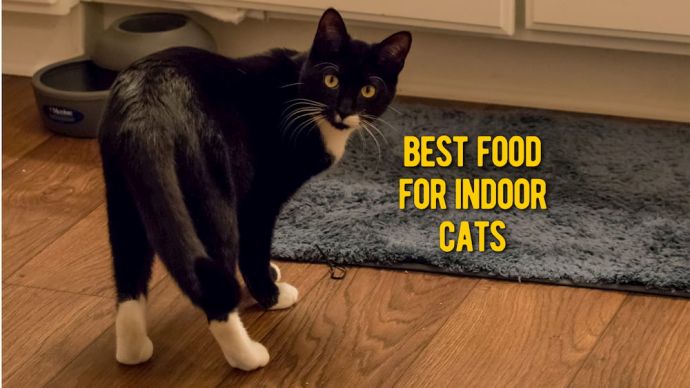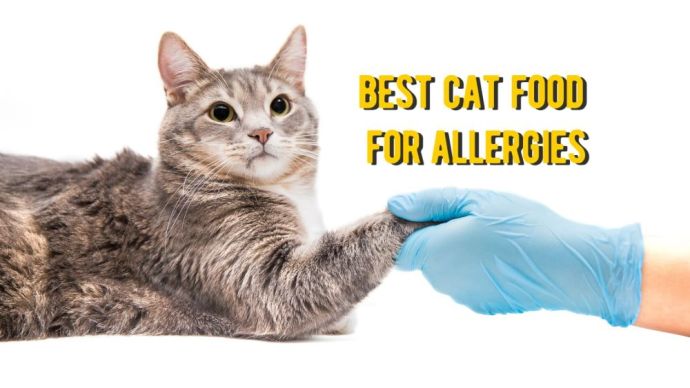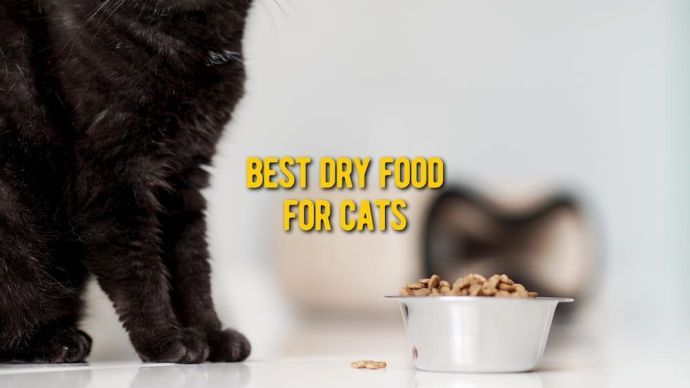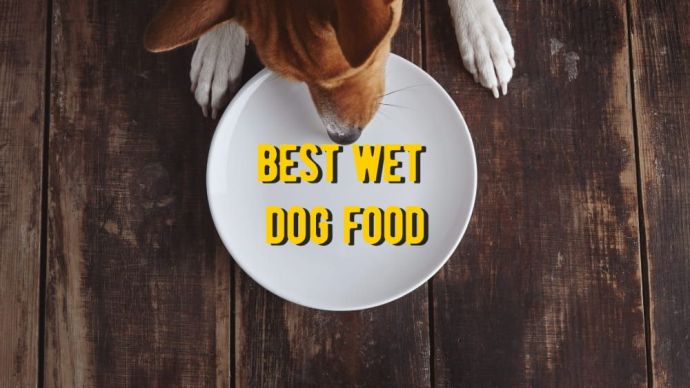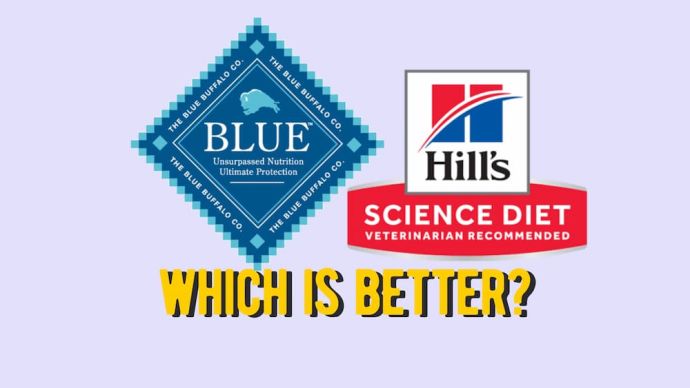The 10 Best Cat Food for Older Cats (Review)
Written by:
Author: Vicki Smirnova
Vicki Smirnova is a professional writer and editor who adores animals and helps readers get along well with their pets. She has been working in digital media for more than 5 years and has great experience writing content about lifestyle, including pets. Vicki specializes in dog health and nutrition, cat feeding, dog training. She is an aquarium lover and is passionate to write about fish care at home. Also, Vicki headed several websites and worked as a news editor.
View all 244 articlesLearn about our editorial process and veterinary review board.
Reviewed by:
Veterinary review
by Dr. Linda Simon
Dr. Linda Simon is a veterinary surgeon working with seven years of experience. She is a fellow of the British Veterinary Association and specializing in animal medicine. Also, she has been the Woman magazine resident vet for the past two years and writes a regular column for them, focusing on pets and their health.
View all 30 articlesLearn about our veterinary review board
Viewed: 360
Updated on: 06/15/2023
There are many foods for elderly felines available on the market, so it is difficult to choose the best one for your cuddly companion. We first recommend you visit your vet to determine the type best for your senior cat and his specific needs.
Quick Look at Our TOP-3 Picks
Then, after narrowing down your choices a bit, check out some TOP rated products for senior cats we’ve listed below:
Products | Benefits | LInks |
Our Top Pick | 1. Royal Canin Aging 12+ Thin Slices in Gravy Canned Cat Food
| |
Best Dry Food | 2. Canidae Grain Free PureSea Cat Food
| |
Best Wet Food | 3. Blue Buffalo Wilderness Grain Free Mature Recipe Canned Cat Food
|
*Ratings are formed by the author of the article based on own research and combined with customer reviews.
Senior Cat Food All Reviews
1. Royal Canin Aging 12+ Thin Slices in Gravy Canned Cat Food
Royal Canin Feline Aging 12+ is an excellent choice for older cats. It is designed to meet nutritional needs and preferences and is created with an optimal balance of protein, fat, and carbohydrates to maintain average body weight. This product is designed to promote healthy joints and is very popular. Feeding our top pick means your pet chows down on its favorite choice daily while still getting the balanced nutrition it needs from each feeding.
Pros
Cons
- Due to the carefully balanced macronutrients, this product will keep a weight where it should be.
- High levels of fatty acids help keep joints healthy.
- Reduced phosphorus levels help maintain kidney health.
- Some owners report it has a strange smell.
2. Canidae Grain Free PureSea Cat Food
PureSea Felidae Grain Free is one of the most suitable for senior cats. Also, chicken flour is a rich source of protein. Cats enjoy the taste of this high-quality formula, which includes cranberries.
The recipe is developed without grains, which may benefit those with grain sensitivity. Thanks to fresh salmon, a high-quality fish meal, delicious taste, and simple ingredients, it is a perfect choice. For those who may develop food sensitivities, fewer components mean a reduced chance of allergic reactions. This simple recipe consists of seven main ingredients, including fresh chicken and other whole foods. Importantly, this recipe contains no fillers, cereals, dairy, or eggs.
Pros
Cons
- The crude protein level is 32%; crude fat is 17%, and fiber is 3%.
- Each jar contains 41 grams of protein, the same amount as a 7-ounce salmon steak.
- It contains 7 simple ingredients, vitamins, minerals, and a probiotic blend.
- Dry kibble may not be preferred by fussy cats or those with dental disease or other oral health issues.
3. Blue Buffalo Wilderness Grain Free Mature Recipe Canned Cat Food
It is a nutrient-rich, grain-free product that meets all its nutritional needs. The recipe includes a lot of delicious chicken to provide the pet with sufficient protein. This product is made using only natural ingredients, with the addition of vitamins and taurine to support the health of the immune system and urinary tract. The feed does not contain by-products from poultry, corn, wheat, soy, or artificial preservatives.
Pros
Cons
- Made with a combination of natural ingredients.
- Contains DHA and taurine to support brain and heart health.
- It contains no gluten, corn, wheat, soy, artificial flavors, or preservatives.
- Sticky feed texture which may cause the product to coat on teeth and lead to dental decay.
4. Royal Canin Digestive Care Dry Cat Food
It is designed for cats with sensitive stomachs. This exact diet is proven to be effective after 10 days. The optimal cIt is designed for cats with sensitive stomachs. This same diet is proven to be effective after 10 days. The optimal combination of probiotics will help normalize digestion. Symptoms of chronic G.I. upset such as diarrhea, vomiting, or regular regurgitation may mean that your family friend has a sensitive stomach and you should consult a veterinarian.[4]
Key features:
- Designed for those who have sensitive stomachs.
- Proven effective after 10 days.
- Made in the USA.
Pros
Cons
- Unique pieces of food in the shape of a ring contribute to slower food intake.
- The perfect complement to Royal Canin Digest Sensitive formulas.
- Not suitable for all creatures.
5. Wellness Complete Health Chicken and Herring Pate Cat Food
Wellness Complete Health Chicken and herring Pate is an excellent food with high-quality protein and essential fatty acids derived from natural and healthy ingredients.
Satisfy your pets’ desire for delicious protein with this product without grain. Each recipe contains real turkey and chicken as the main ingredients in the gravy. Each meal includes the necessary amount of taurine, vitamins, minerals, and amino acids to maintain well-being. Because the food is made from natural broth, it helps maintain a water balance and supports the digestive and urination systems’ health. Serve the product as a main meal or as a delicious topper.
Key features:
- Free of grain, carrageenan, artificial colors, and preservatives.
- Helps maintain water balance.
Pros
Cons
- Chicken and fish are the main ingredients.
- Helps maintain correct water balance.
- It contains cranberries to naturally support the urination system.
- Pâtè style foods can cake on teeth and lead to dental disease.
6. Ziwipeak Daily Cuisine Grain-Free Canned Cat Food
This formula is most suitable for older cats with sensitive stomachs. It is grain-and gluten-free, specially made from high-quality meat and offal, and does not contain carrageenan. Your family friend will benefit from all that raw meat offers, such as amino acids, including taurine, and a good supply of essential fatty acids.
This product, made with a delicious, hydrating texture similar to a stew, is perfect for cats. It contains delicious and nutritious meat, organs, a little crushed bone, and some New Zealand green-lipped mussels. This is flavorful and mouth-watering food with a high chondroitin content for the joints.
Key features:
- Made from high-quality meat from New Zealand.
- 100% grain-free and gluten-free.
- No carrageenan or meat offal.
Pros
Cons
- It is made from delicate meat and meat offal with a full range of vitamins.
- Uncommon protein sources which are less allergenic.
- An irresistible and hydrating stew with an attractive texture.
- Expensive
- The soft texture can contribute to dental disease
7. Purina Pro Plan Focus Adult
Purina Pro Plan Focus Adult 11+ Classic Salmon & Tuna Entree is made from high-quality ingredients selected exclusively to benefit your older pet. The feed contains high-quality protein from real salmon and tuna. Each serving contains 25 essential vitamins and minerals and taurine, an amino acid that helps maintain overall health. Besides, this diet is designed for adult cats 11 years and older to get the specific nutrients they need.
Key benefits:
- Contains all the amino acids needed for the overall health.
- A grain-free formula, made from real salmon and tuna for a balanced diet.
- Specially designed to meet the needs of cats aged 11 years and older.
Pros
Cons
- Contains 25 vitamins and minerals, as well as taurine-for the health and well-being.
- Helps maintain healthy skin and a beautiful shiny coat.
- Essential nutrients support the immune system
- Not everyone will be a fan of the fishy flavor.
8. Hound Gatos Grain-Free Canned Cat Food
This product is made from 100% animal protein. Thanks to the tasty chicken, salmon, and beef, this product provides your feline friend with all their essential nutrients. A proper diet rich in digestible protein and water helps prevent kidney disease and IBD. This delicious food, designed with the wild cat meat diet in mind, will definitely appeal to your carnivorous furry friend.
Key features:
- Enriched with vitamins and minerals.
- Made without adding carbohydrates.
- Made in the USA.
Pros
Cons
- Made from 98% high-quality lamb and lamb liver.
- An appropriate diet for carnivores that does not contain vegetable protein.
- High moisture content improves the water balance.
- Anecdotally causes vomiting in some cats.
9. Hill’s Prescription Diet y/d Thyroid Care with Chicken Canned Cat Food
A prescription diet is a safe, effective, and easy way to maintain thyroid health. Studies have proven that hyperthyroidism can be reversed in 3 weeks if cats eat this diet exclusively, and this diet requires a prescription from your veterinarian.
Key features:
- This food has been clinically proven to restore thyroid health in 3 weeks.
- Supports the health of the kidneys through controlled phosphorus and sodium.
- Ideal for those who dislike being medicated with pills or liquids.
Pros
Cons
- Ensures healthy skin and a soft coat due to the high content of omega-3 and omega-6 acids.
- Supports heart health by providing nutrients such as taurine and carnitine.
- A complete daily meal with a taste that will appeal to your cat.
- Some report this choice is not moist enough.
10. ORIJEN Six Fish Dry Grain Free Cat Food
It contains organic, and natural fish caught in natural conditions and provides a nutrient-rich diet that ensures that cats are fed according to their evolutionary and biological needs. This product is made from fresh whole Atlantic mackerel, flounder, sea devil, herring, Acadian sea bass, and silver hake in nutritious WholePrey proportions, which provides a varied and meat-rich diet. It contains healthy proteins, which makes it ideal for seniors, adults, and kittens of all breeds.
Key features:
- Biologically suitable grain-free product.
- Made from fresh and raw ingredients of animal origin.
- The recipe includes six types of fish.
Pros
Cons
- 90% meat inclusions; 10% vegetables, fruits, and plants; 0% grain.
- Contains natural meat ingredients in a ratio similar to wild prey.
- Made from natural fish ingredients.
- Had a massive recall in 2008 in Australia.[3]
Final Verdict
The review found that the most suitable food for older cats is Royal Canin Aging 12+. This formula is designed specifically for those cats 12 years and older. The product provides a balance of protein, fat, and carbohydrates. It contains a blend of healthy fats and glucosamine to support joint health and vitamins and minerals, antioxidants, and reduced phosphorus to support kidney health. The food consists of large pieces in a tempting sauce. The soft texture makes it easier for older cats with sensitive teeth and gums to eat.
When is a Cat Considered a Senior?
RELATED ARTICLE: Signs your cat getting old
Feed manufacturers typically divide a life cycle into three stages: kitten, adult, and senior. This is done to ensure cats are provided with the appropriate nutrition for each life stage. The average life span ranges from 13-16 years depending on breed and lifestyle. According to several studies, cats become seniors between 7 and 10, though the exact figures vary depending on the source. However, please do not assume that all pets are the same; they, like people, might be healthy and active well into their teens or get old before their time. Naturally, if your furry friend has a chronic health condition, they tend to age much quicker and may be classified as seniors before their time. Similarly, female cats who have many litters and un-neutered males who live outside often seem to age quicker. If your vet has prescribed a diet for health reasons, it may not be tailored to the cat’s age.
When a cat reaches the age of 7-10 years, it may show the following changes in its body and behavior:
- Reduced ability to digest certain ingredients;
- Reduced sense of smell;
- Reduced kidney performance;
- Dental decay and/or gingivitis;
- Reduced physical activity, which can lead to weight gain;
To ensure you are feeding the most appropriate diet for your senior cats, first, you need to consult a veterinarian for a general health check.
It is also recommended buying food designated for “Senior Cats” or “For cats older than 7 years”.
You can continue to feed your cat kibble, but due to possible problems with their teeth, they may find it challenging to crack the dry food pellets, which could result in tentative eating, the food being swallowed whole or complete refusal to eat. To check if this is happening, you should observe meals. If they appear to be struggling, it may be time for dental treatment with the vet. In the meantime, offering wet or mixing their kibble with warm water may help soften it. Adding water will increase the feed’s moisture content, which can be beneficial for those with chronic kidney disease.[1]
Nutritional Requirements for Elderly Cats
While different sources will advise feeding senior food at different ages, the consensus advises that this is done at about 10 years of age for neutered cats.
Certain breeds or cats with obvious signs of premature aging or chronic health problems may need to be transferred to a senior diet from as early as 7 years old.
Remember that after neutering a cat, they will generally become less active and their metabolism may slow, meaning that they should be transferred to a lower calorie food at this stage.
READ MORE: Signs of Nutritional Deficits in your Cats Diet
So, which is the best choice and why feed it?
It’s very simple. Kittens and young, active cats need more protein and carbohydrates to build muscle fibers and store energy, while older cats do not need to consume large amounts of protein and carbohydrates. In fact, feeding older furry friends too much protein and carbohydrates will mean they store their food as fat reserves due to lower calorie demands and reduced physical activity.
In some cases, senior cats may develop a smaller appetite and, in this case, it can be useful to offer a senior food with higher calorie content. If cats also experience other symptoms such as vomiting, diarrhea or weight loss they should be examined for a medical issue.[2]
How to choose the Right Food for Older Cats
First, you ideally need to consult your veterinarian, since each case is individual and only a specialist can tell you the most appropriate feed for your furry friend.
Food for elderly cats should be balanced in protein, fat, and carbohydrates to maintain weight, prevent the rapid gain of fat mass and to prevent muscle loss due to lack of physical activity.
- Ensuring the Calcium and Phosphorous provided are adequate is important as inappropriate amounts can result in renal disease and poor bone health.
- Protein should be high quality and digestible but not in excess amounts, which could be hard for the kidneys to cope with.
- Providing all the necessary micronutrients helps to ensure a functioning immune system and prevent disease.
Some old cats are reluctant to consume the necessary food, which is often due to the presence of chronic diseases and/or diseases of the gums or teeth. As a result of which, the body does not receive the necessary nutrients and trace minerals. In this case, the first thing to do is to have the pet examined to determine the underlying issue. This will typically entail a vet check and possibly some blood tests. In some cases, offering the pet a mixture of wet and dry food or completely transferring it to a wet food can improve their appetite.
Higher quality and premium senior choices should contain a plethora of vitamins and minerals, as well as ingredients such as chondroitin and glucosamine. Provision of the right micronutrients can aid digestion, maintain the body’s protective functions in a normal state, and even slow down the natural aging processes.
When prescribing a diet, the veterinarian pays attention to the following aspects:
- Presence of any chronic diseases;
- The general physical condition;
- Individual characteristics and lifestyle;
- A cat’s preference for flavors, textures and wet vs dry food
Based on these points, the veterinarian can determine the most appropriate diet for your furry friend.
Tips for Feeding and Caring for a Senior Cat
Feeding elderly cats is similar to feeding young and adult family friends; we must provide constant fresh water and a clean bowl of food at regular intervals. Senior creatures sometimes need a little more persuasion to eat than their counterparts, which may mean a wet diet and providing highly palatable food.
Careful selection of the right diet leads to:
- good health and normal body weight;
- slowing down of natural aging processes;
- prevention of chronic diseases;
- better management of the chronic disease.
A well-chosen diet with a balanced amount of protein, fat and carbohydrates, minerals, vitamins, and other useful substances for your elderly pet will significantly improve your pet’s quality of life and extend the time of its happy life with its owner.
Cats are usually experts at eating as much food as they need. However, if you notice that your pet eats too little food and begins to lose weight, you may need to use a more saturated and high-calorie food. You can also stimulate the appetite with activities, games, and various treats. [5] Be mindful that any unexpected appetite or weight change should be investigated by a vet.
READ MORE: Adopting Older Cat
What Not to Feed Senior Cats
With age and natural aging processes, the teeth and gums may weaken, and it will be difficult, and sometimes even painful, to eat solid, bones, and dry food.
However, dry food helps to get rid of plaque and tartar, so you can mix dry and wet food and periodically include them in a diet where appropriate. When switching to a diet consisting of wet, the mouth should be examined regularly by a veterinarian for plaque or tartar formations as they generally occur with more frequency.
You should not give an elderly cat fish bones or meat bones.
Fish bones can get stuck in the gums and cause not only the cat but also their owner a lot of trouble and could possibly result in a high vet bill. Chicken or other bones can be painful for the pet to chew, and sharp pieces of bone can also scratch and damage an elderly cat’s gums and fracture teeth. On top of this, they can lodge in the food pipe, stomach or gut and cause a serious intestinal obstruction.
Inappropriate and poor quality diets can negatively affect the digestive tract and physical state, with the elderly often being worst affected. Ingredients that are toxic of all ages include grapes and raisins, onions and garlic, chocolate, and caffeine-containing products.
If an elderly cat consumes any of these ingredients, you should immediately seek help from a veterinarian, so you can ensure they remain well.
FAQ
At what age should a Cat eat senior food?
The age you should feed your pet a diet formulated for seniors is dependent on a number of factors that a veterinarian can help you understand. However, based on the observations of owners and research by veterinarians, the average age for switching to special feed for the elderly is in the range of 7 to 10 years.
Cats who were once strays, who have had multiple litters and who suffer from ill health can age quicker.
As a rule of thumb, neutered cats can be transferred to a senior diet from 10 years of age.
What is the difference between senior and regular food?
Specialized food for elderly cats differs from regular food with its lower calorie content and specific content of vitamins, minerals, and amino acids for the proper functioning of the digestive system, its internal organs, and its immune system.
How much should I feed my Senior Cat?
The amount of food consumed by an elderly pet is a purely individual figure, as it depends on several factors:
- Presence of chronic disease;
- Physiological state;
- Whether the cat is under or over weight;
- An activity levels;
- Whether the cat is an indoor or outdoor;
- Whether the cat has been neutered.
How to make a food softer for a Senior Cat?
To soften food, you can resort to mixing dry and wet or switch entirely to a diet of wet type.
You could also add a tablespoon of warm water to a bowl of dry food and mix the food, as a result of which the pellets of dry food will be saturated with moisture and become a little softer, making it easier for the cat to bite into them. This also results in the production of a meaty gravy, which your older pet will certainly appreciate.
Article Sources:
- Elderly Cats — Special Considerations | International Cat Care. 30 July 2018, icatcare.org/advice/elderly-cats-special-considerations/.
- The Special Needs of the Senior Cat | Cornell University College of Veterinary Medicine. vet.cornell.edu/departments-centers-and-institutes/cornell-feline-health-center/health-information/feline-health-topics/special-needs-senior-cat.
- “Orijen Pet Food Recall History (Fully Updated, Constantly Monitored).” Petful, 9 Nov. 2020, petful.com/brands/orijen/.
- Signs Your Cat Is Getting Old—ROYAL CANIN ® — Royal Canin. 23 July 2020, royalcanin.com/us/cats/health-and-wellbeing/how-old-age-affects-cats.
- Behavior Changes in Aging Cats.pets.webmd.com/cats/guide/aging-cat-behavior
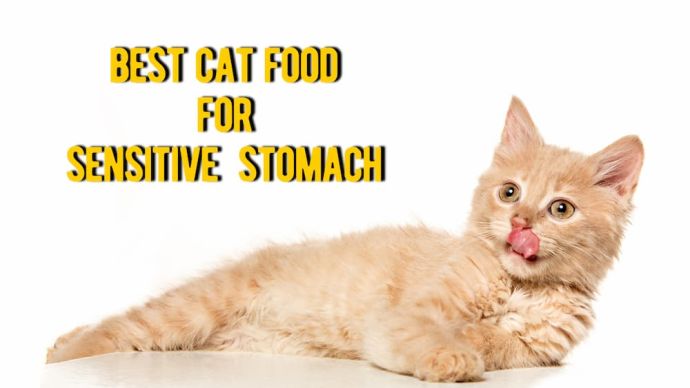 Cat Food Reviews The Best Cat Food for Sensitive Stomachs (Vet Approved Review)
Cat Food Reviews The Best Cat Food for Sensitive Stomachs (Vet Approved Review) - 2623
- 0
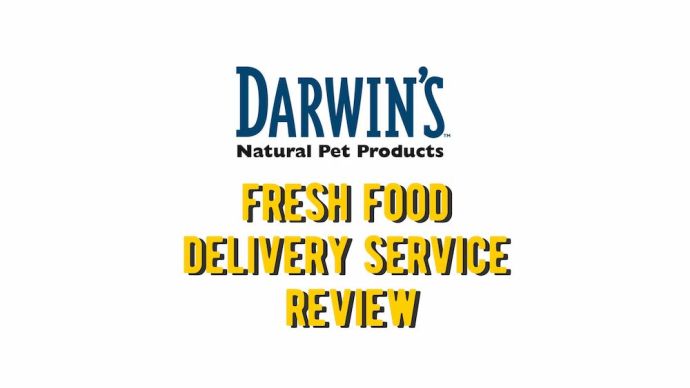 Dog Food Reviews Darwin’s Pet Food Review: Fresh Pet Food Delivery Service Review (Vet Approved)
Dog Food Reviews Darwin’s Pet Food Review: Fresh Pet Food Delivery Service Review (Vet Approved) - 443
- 0
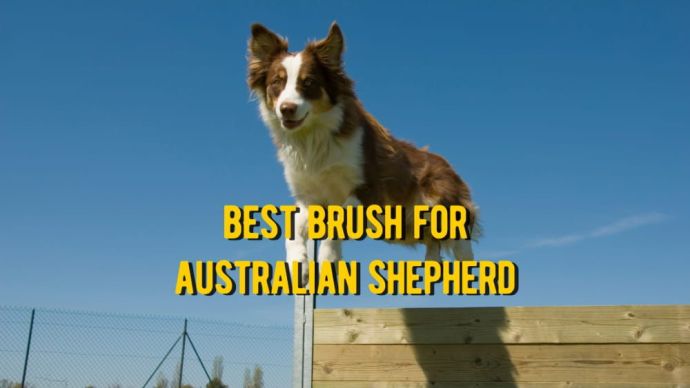 Dog Products & Toys Reviews The 10 Best Brush for Australian Shepherd: Review and Buying Guide
Dog Products & Toys Reviews The 10 Best Brush for Australian Shepherd: Review and Buying Guide - 13353
- 0









